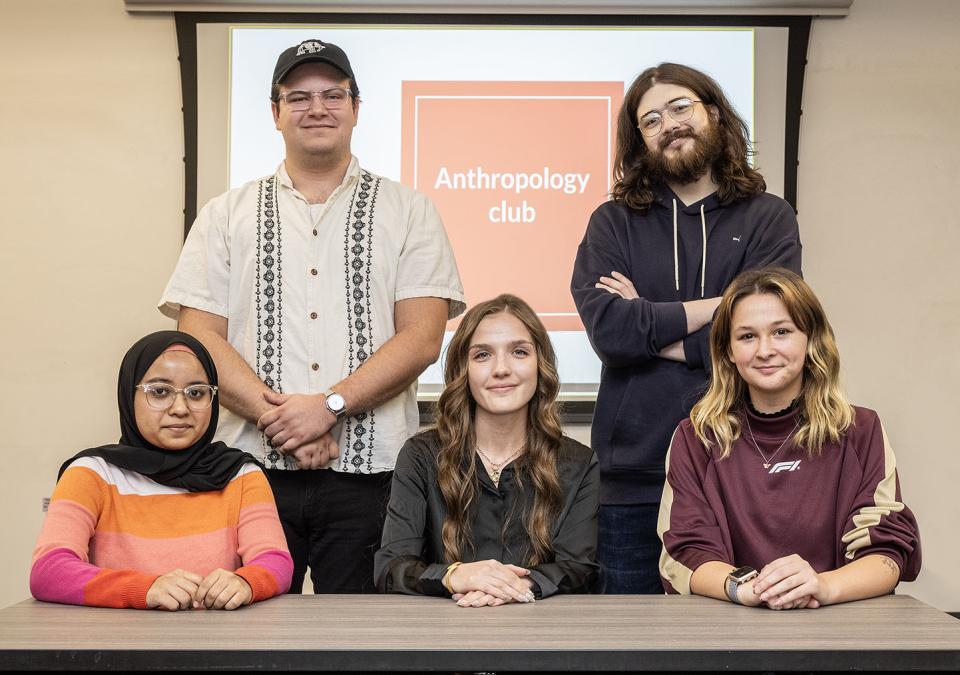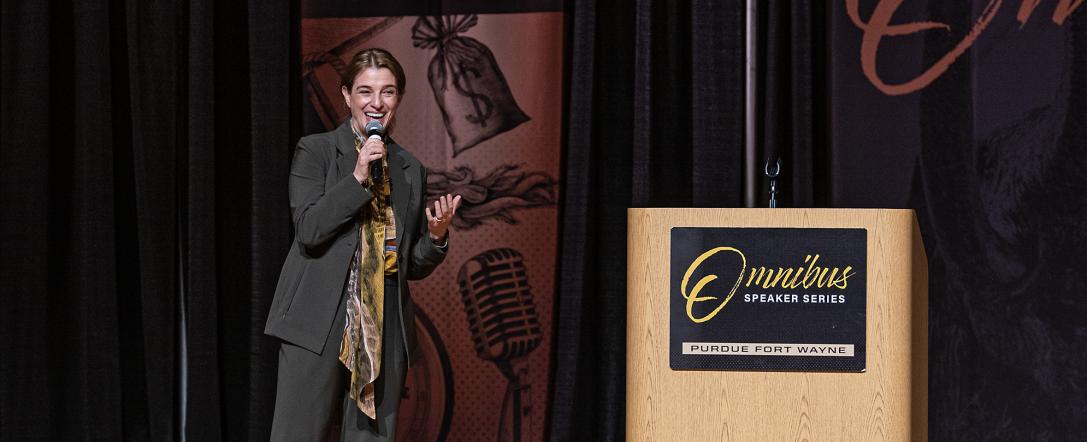
PFW Story
Anthropology Club keeps pioneering spirit alive with new members, podcast
Founded in the mid-1970s, the Anthropology Club has been one of Purdue University Fort Wayne’s longest-lasting student organizations. When the club started its weekly lecture series more than 40 years ago, those talks became one of the campus’s most popular events.
Excellent speakers from around the world talked about their research and projects—and free pizza was another enticement—drawing students from different disciplines. At the time, it was the only lecture series on campus, often drawing between 80 and 100 students each week.
That pioneering spirit lives on with current club members.
“We talk about a lot of very interesting things,” said Forrest Rommel, a senior and three-year club president. “In anthropology, you get to talk about the human experience, and everyone wants to hear about that. I think that drew in a lot of people in general because everyone wants to know a little more about the human experience around the world.”
When the pandemic started, the lectures continued online, but lost some of their broader audience, which has been difficult to recapture. Rather than scrap what the club is best known for, Rommel and the other officers are trying to keep the lectures alive in a different format. Now, they are switching to a podcast called Anthrodons. It’s available on Spotify, Amazon Music Podcasts, Podcast Addict, and iHeartRadio.
“Since there is a significant history behind the lecture series, there is a responsibility that we recognize exists,” said Julian Colon, a junior and the club’s vice president. “This is not done flippantly in any way, shape, or form. We want to preserve the spirit of it and allow more people to access it. We’re trying to pivot into the age where people want their content now and in the manner it makes the most sense to them, and that tends to be podcasts.”
The club’s officers served as the first guests, including treasurer Bree Felger and secretary Rashida Lan, talking about their interests and hopes for the podcast. Sarah Newman, a University of Chicago professor who studies the archeology of trash, was the first official guest.
“When it was getting smaller, I didn’t want this to go away,” Rommel said. “I wanted to make sure it moved forward, even if we had to break tradition and go in a new way.”
They hope the change will also allow the club to host other events. Planning a weekly lecture series monopolized the officers’ time because they often had to work at least a semester ahead to line up speakers. Now they are planning events such as museum field trips, a cultural food feast, an international game night, and a seminar on getting into grad school.
A recent introductory mixer and game night drew 30 members to the IDEASpace at Helmke Library on a Wednesday evening.
“When we were just doing the lectures, there wasn’t a sense people were getting to know each other,” Rommel said. “You had 40 majors and a decent number of people working on minors, but you didn’t know who was who. This was just kind of getting people a chance to talk to each other and try to build a community for some events we haven’t typically pursued in the past.”
Several staff and faculty members attended the mixer as well.
“The club is an extension of the program, and they are kind of representatives who help put us out there,” said Richard Sutter, professor of anthropology and former club advisor. “Nobody has to take anthropology but anthropology majors, but we do attract students from other majors.”
The lecture series might return in another fashion, Rommel said, but it will likely follow the podcast format with an officer interviewing a guest for a recording. Podcasts are also not restrained by time or by students needing to skip out early to get to class.




